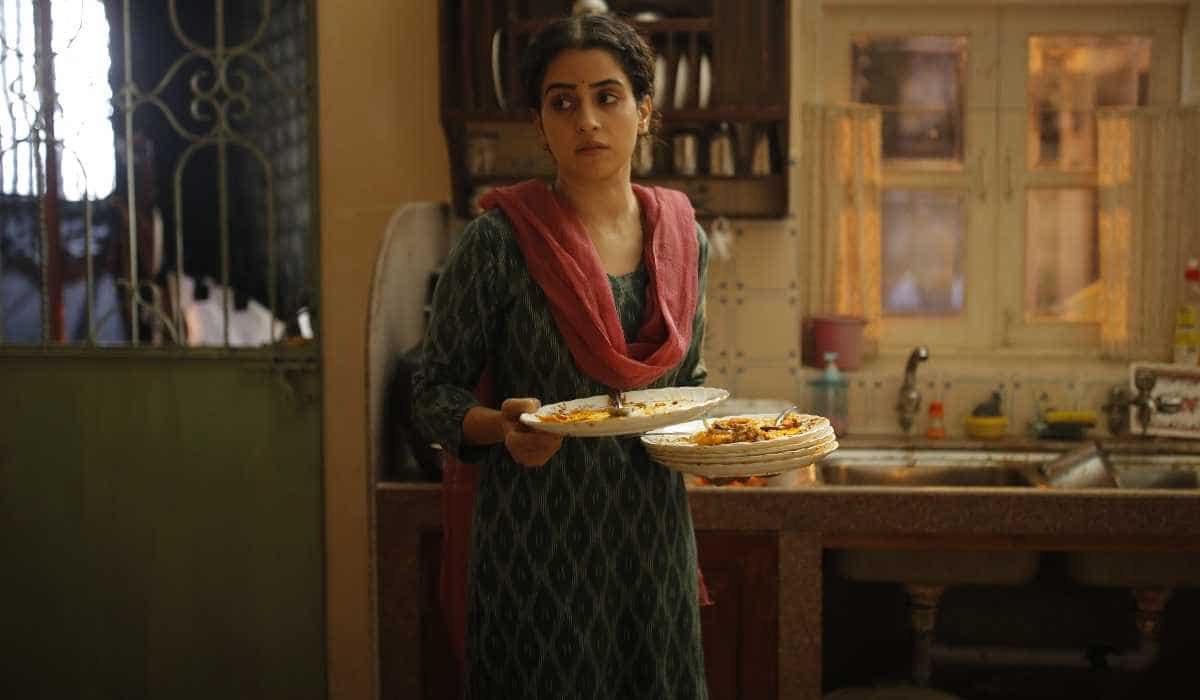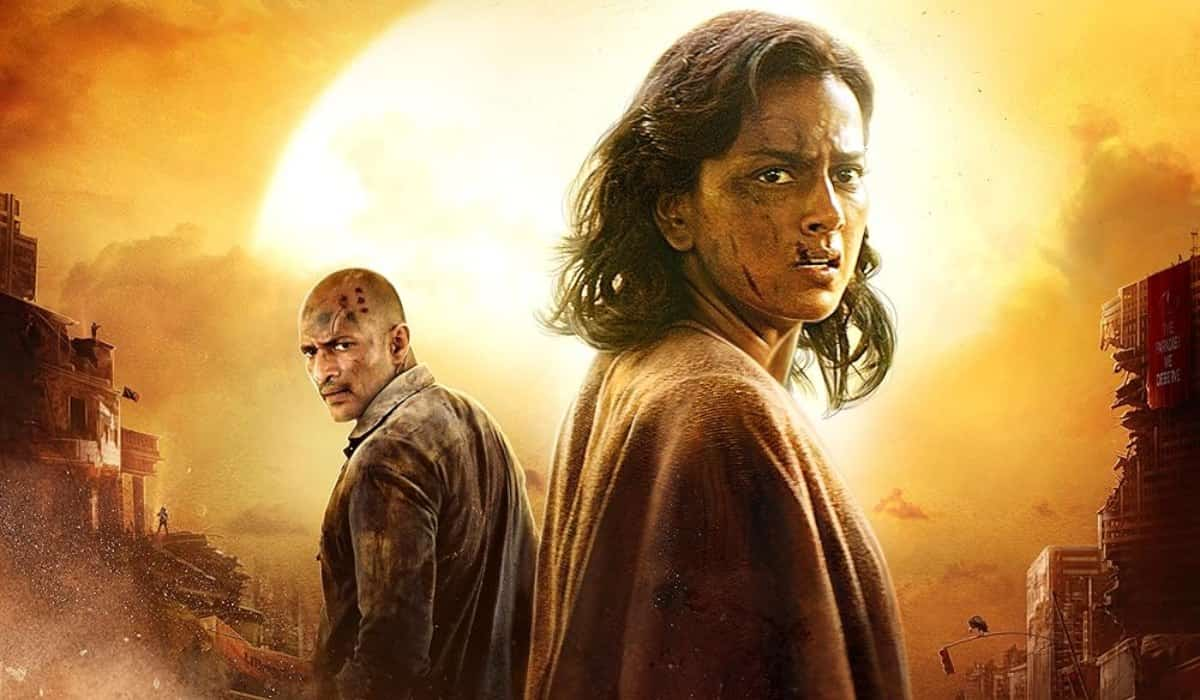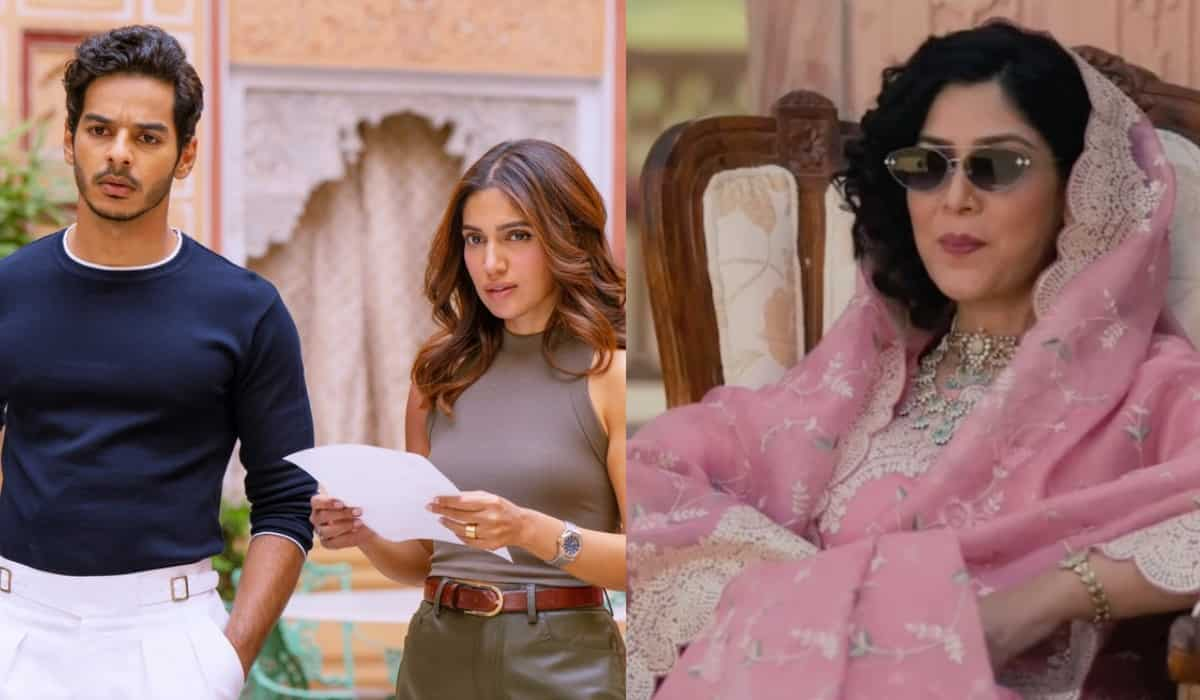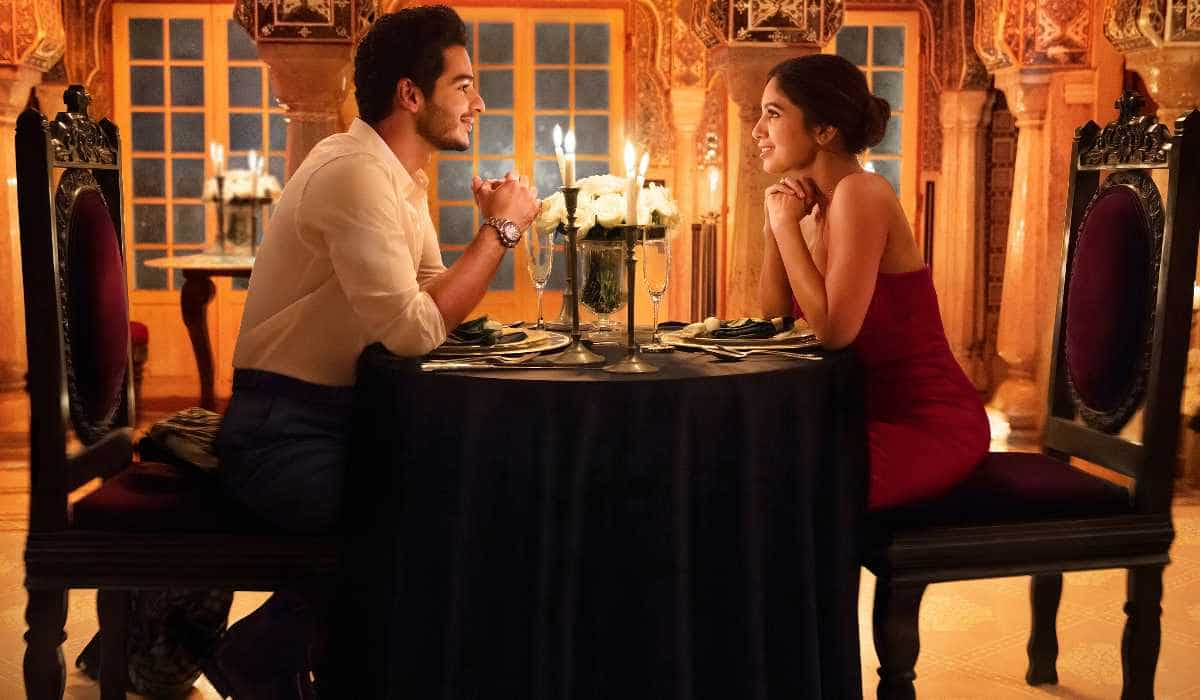
Mrs. Review: Sanya Malhotra's The Great Indian Kitchen Remake Presents a Compelling but Weakened Perspective on Patriarchy
3 months ago | 5 Views
Mrs. Story:
A young woman named Richa (Sanya Malhotra) is depicted in Mrs. as she navigates the challenges of being married into a traditional patriarchal household, which forces her to postpone her dream of becoming a dancer. Almost immediately, she is overwhelmed by an unending array of household responsibilities, while her in-laws' assertion that "the kitchen is a woman's domain" resonates in her thoughts. As she grapples with the heavy weight of societal expectations, a transformation begins within her, leading to the gradual decline of her aspirations. Will Richa summon the courage to take a bold step that surprises both her family and herself, or will she continue to conform to a system that perpetuates her subjugation? Is it possible for a single woman to ignite a revolution from the confines of her own home?
Mrs. Review:
Following considerable effort, Jeo Baby unveiled The Great Indian Kitchen, a film that astonished viewers with its revealing content. This film inspired numerous remakes; however, the allure that highlighted deep-rooted patriarchy was arguably debatable. The Hindi adaptation of the film, which shares the same title, has already suggested through its previews that it may not treat the subject matter with the seriousness it deserves, unlike the original Malayalam version. With Mrs. having been viewed, it is time to assess whether it has fully honored the original's intent.
The film commences with Sanya Malhotra's character, Richa, engaging in a fervent dance with her troupe, juxtaposed against scenes of women diligently preparing meals in the kitchen. Shortly thereafter, she finds herself in an arranged marriage, where she meets Diwaka (Nishant Dahiya), a gynaecologist whose father is a retired physician and whose mother is a homemaker. The initial interactions between them are imbued with romance, leading Richa to anticipate a life filled with joy and abundance. However, she remains unaware that these expectations are mere illusions, soon to be overshadowed by a tumultuous reality that will drastically alter her existence.
On the day following their wedding, Richa observes her mother-in-law silently overseeing the kitchen, only breaking her silence to instruct Richa on household tasks or to reprimand the domestic help, who is also balancing responsibilities at the clinic. Additionally, her husband often requests that she organize his clothes and personal items on the bed, a chore that frustrates her as it seems unnecessary.
This marks the beginning of an unanticipated struggle for Richa, as she grapples with her inability to accept the unfolding situation while simultaneously conforming to her perceived duties as a woman within the household. Directed by Arati Kadav, the film elicits discomfort through its exploration of the female perspective. It presents unsettling moments, such as the presence of a male gynaecologist in a highly educated family, alongside the regressive notion that no men in the household are willing to pick up items from the floor.
The director integrates a commercial aspect into the storyline, illustrating a patriarchal bungalow situated in an urban environment. Nevertheless, Sanya Malhotra's performances, which explore the character profoundly and convey the narrative through her perspective, do not diminish this element. There are moments where it becomes evident that her passion for dance drives her to seek approval from her in-laws, a step that is unnecessary. However, the actor faces a conflict when she showcases her abilities and confronts traditional rejection.
The film falters primarily due to the performance of the male lead, portrayed by Dahiya, who fails to reach the standard established by Suraj Venjaramoodu in The Great Indian Kitchen. Dahiya attempts to embody a threatening husband who, despite his modernity, clings to his father's traditional views that women should be confined to domestic roles.
When a woman enters a new household, both partners anticipate a mutual transformation. However, when the man shows no willingness to change, even marginally, patriarchy firmly establishes its presence.
There are moments prior to the marriage that stand out, such as when Diwakar requests the WiFi password during his visit to Richa's home for their arranged meeting. This scene is endearing and subtly indicates that the prospective groom is well-educated yet lacks practical understanding, as he appears overly sheltered. Later, he expresses a preference for home-cooked meals over dining out, and his charm, coupled with his gentle demeanor, ultimately wins Richa's affection, allowing her to overlook his shortcomings.
The female perspective poignantly highlights how Diwakar's overtly sexual demeanor reduces him to a mere automaton, pursuing physical intimacy devoid of genuine emotion. The portrayal of these interactions is unsettling and poignant, especially when Richa seeks a deeper connection rather than mere physicality for procreation, only to be met with his insensitive remark about her appearance, suggesting she should be more appealing to engage in intimate relations.
The scenes, while impactful in establishing a foundation for a significant emotional response, ultimately fall short in the moment. The film effectively manipulates circumstances to elicit a loud reaction from Richa, yet all she endures is suffering.
Viewing The Great Indian Kitchen evokes a sense of claustrophobia due to the relentless depiction of daily routines, reflecting the experiences of countless women across the nation. It is this discomfort that renders the film compelling. Nevertheless, the established pattern eventually shifts, revealing the efforts made, although the consequences require some time to manifest.
Malhotra and Dahiya maintain a strong stance in their portrayal of the character; however, the presence of Kanwaljit Singh as the patriarch, Papaji, truly stands out. The actor is typically recognized for his endearing role as a father who indulges his daughter, yet this contrasting portrayal is remarkably effective, as his mere gaze compels women to retreat to their domestic responsibilities, emerging only out of obligation.
While Mrs. attempts to infuse its own distinct appeal, it ultimately falls short in evoking empathy, which is constrained by significant limitations. This deficiency hinders the film from engaging in the robust discourse that The Great Indian Kitchen successfully introduced.
Mrs. Verdict:
Mrs. arranges the table while offering a simmering critique of patriarchy, yet presents a watered-down interpretation of the intense original. Sanya Malhotra evokes strong emotions through her captivating performance; however, the film frequently resembles a half-hearted insurrection rather than a comprehensive revolution.
Read Also: Vidaamuyarchi Review: A Skillfully Crafted Action Thriller by Ajith Kumar and Magizh Thirumeni
"Get the latest Bollywood entertainment news, trending celebrity news, latest celebrity news, new movie reviews, latest entertainment news, latest Bollywood news, and Bollywood celebrity fashion & style updates!"





















